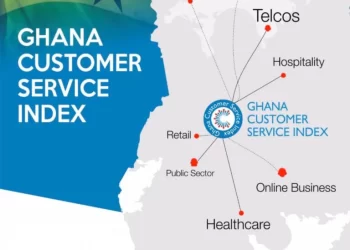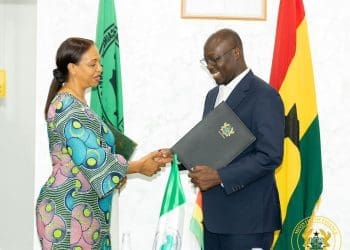Ghana’s Finance Minister, Dr Cassiel Ato Forson, has disclosed that a total of GH¢114.5 billion was disbursed from the Consolidated Fund in the first half thus between January and June 2025, to meet critical financial obligations of the state.
Presenting the 2025 Mid-Year Budget Review to Parliament on Thursday, July 24, 2025, Dr Forson gave a detailed breakdown of how the funds were allocated, emphasising that the expenditures reflect the government’s ongoing efforts to meet both domestic and external commitments while supporting social interventions, education, health, and energy supply.
Eurobond, domestic bond payments take priority
According to the Minister, part of the total sum included a US$700 million (approximately GH¢10.6 billion) Eurobond payment to meet Ghana’s international debt obligations. Additionally, GH¢10 billion was paid to domestic bondholders to honour commitments made under the government’s debt management programme.
Local govt and pension obligations met
In line with constitutional and social security obligations, GH¢2.9 billion was released to the District Assemblies Common Fund (DACF), while GH¢2.7 billion went to the Social Security and National Insurance Trust (SSNIT) to ensure pensions for retirees remained uninterrupted.
Stabilising the power sector and addressing arrears
The Minister revealed that GH¢9.1 billion was allocated to the energy sector to support stable electricity generation and distribution.
A further GH¢5 billion was used to clear part of the government’s arrears owed to contractors and service providers.
Major investment in education and health
Highlighting the government’s focus on human capital development, Dr Forson said GH¢4.6 billion was disbursed to the Ghana Education Trust Fund (GETFund), while GH¢1 billion went directly to the Free Senior High School programme to ensure sustained tuition-free education.
In the health sector, the government released GH¢4.6 billion to the National Health Insurance Scheme (NHIS) and GH¢1.4 billion to settle insurance claims.
An additional GH¢252 million was committed for vaccines and essential medicines to strengthen healthcare delivery.
Targeted support to vulnerable groups and youth
To support vulnerable citizens, GH¢477 million was disbursed to beneficiaries of the Livelihood Empowerment Against Poverty (LEAP) programme, while the School Feeding Programme received GH¢895 million to provide daily meals to schoolchildren.
Education-related allowances and grants also featured prominently.
The government spent GH¢122.8 million on Basic Education Certificate Examination (BECE) registration, GH¢300 million on the “No Fee Stress” policy, GH¢191.7 million on teacher trainee allowances, and GH¢462.6 million on nursing trainee allowances.
Other social interventions included GH¢25 million paid as allowance to Assembly Members, GH¢21 million for the National Apprenticeship Programme, and GH¢34.5 million to support the government’s flagship Adwumawura Programme aimed at boosting job creation.
Running govt and saving NIB
To ensure the effective functioning of government machinery, GH¢2 billion was spent on goods and services across ministries, departments, and agencies (MDAs).
Another GH¢2 billion was injected to rescue the struggling National Investment Bank (NIB), which has been earmarked for strategic restructuring.
Fiscal discipline and non-interest spending
Out of the GH¢114.5 billion spent, GH¢84.2 billion represented non-interest expenditures. Dr Forson assured Parliament that the government remains committed to fiscal discipline while protecting pro-poor policies and growth-enhancing programmes.
“Our budget execution reflects our resolve to balance prudent financial management with social equity. We are prioritising debt sustainability, macroeconomic stability, and improved service delivery,” Dr Forson said.
He pledged that updates on the impact of these expenditures and broader fiscal performance would be provided in subsequent briefings.














